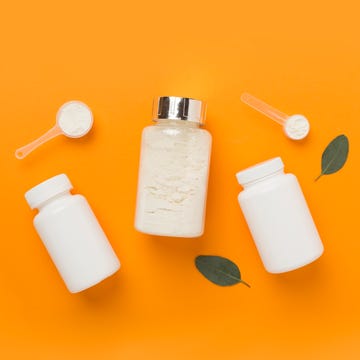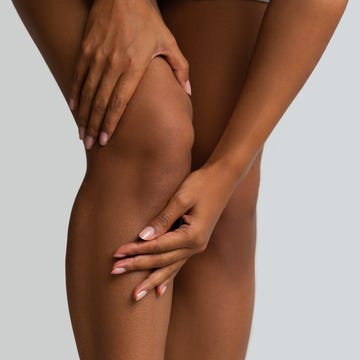We probably don’t need to tell you this… but it’s hot out there and the heatwave could be starting to take its toll. Soaring temperatures impact not only our bodies but our brains, too. According to research published in the journal Plos Medicine, people who are exposed to hotter temperatures do significantly less well in cognitive tests. ‘Your body functions best when its internal environment – water, temperature, body salts – is very precisely controlled,’ says GH’s Dr Sarah Jarvis. ‘That means that as soon as the temperature rises, your body starts working to keep things stable.’
The heat and your brain
High temperatures can affect our behaviour in unexpected ways. Research suggests our ability to learn is impacted in hot weather and that we suffer some cognitive decline – so, if you find yourself feeling frazzled and mentally sluggish, the heatwave is probably to blame. But there are other ways our behaviour is influenced, too.
‘Evidence from experimental studies and data gathered by the police shows that the heat affects our behaviour and may make some people more aggressive,’ says Professor Barbara Sahakian of the University of Cambridge and co-author of Brain Boost: Healthy Habits For A Happier Life.)
What to read next
‘During the summer, especially when particularly hot, there’s more aggressive behaviour, including car horn beeping, car crashes and assaults. Therefore, it seems that our brain’s inhibitory control system involving the frontal lobe regions doesn’t function as well as it should to stop us doing something impulsively that we might later regret.
‘If you find you’re in a bad mood or getting impatient in the heat, stay hydrated, cool yourself down, relax or practice mindfulness.’ Instead of getting angry, she adds, think of doing an act of kindness; neuro-imaging studies have shown that this ‘activates the brain’s reward system, similarly to receiving money. That way, we can all share in a happier summer.'
The heat and your body
Puffy ankles, lethargy and low blood pressure are just some of the ways your body might react to soaring temperatures. ‘Heatwaves put extra strain on the body – your heart works harder, blood pressure can drop and sleep often suffers,’ says GH’s Dr Mo Khaki.
‘In high temperatures, blood vessels dilate to help dissipate heat, which can lower blood pressure. This might lead to dizziness or fainting in some people, especially the elderly or those on blood pressure medications.'
Take particular care in the heat if you already have heart issues. ‘The heart also has to work harder to maintain circulation, which can place additional strain on those with underlying cardiovascular conditions,’ he adds.
And while the heat can help mobility, fluid retention can sometimes cause inflammation and stiffness around joints, which can make pain worse. ‘You’re also less likely to be active in very hot weather, which can contribute to joint stiffness and pain,’ says Dr Sarah Jarvis.
And then there’s sleep. ‘Elevated nighttime temperatures can significantly disrupt sleep by interfering with the body’s natural drop in core temperature needed for sleep onset and quality,’ explains Dr Khaki. ‘Poor sleep over several nights can impact mood, cognition and immune function.’ If your sleep is disrupted, try putting your bedding or pyjamas in a plastic bag and popping in the freezer for a couple of minutes. Filling a hot water bottle, freezing it and taking it to bed with you can also help. And before bed, try a tepid shower to lower your body temperature.
How to stay cool
The NHS advises everyone to stay out of the heat if possible, especially between 11am and 3pm. Wear sunscreen, a hat and light clothes and avoid anything that makes you hotter. The NHS also recommends having cold food and drinks, avoiding alcohol, caffeine and hot drinks and having a cool shower, as well as keeping your home cool.
Signs of overheating
‘Early signs include excessive sweating, fatigue, thirst, and dizziness. As it progresses, you might experience headache, nausea, muscle cramps and confusion – all signs of heat exhaustion,’ says Dr Khaki. ‘If the body loses its ability to cool down (i.e., sweating stops), that’s a red flag for heatstroke, which is a medical emergency.’
According to the NHS, anyone with heat exhaustion should follow four steps to stop it turning into heatstroke; moving to a cool place, removing unnecessary clothing, having a drink and cooling the skin with water or ice packs. If someone is still unwell after 30 minutes, call 999.













